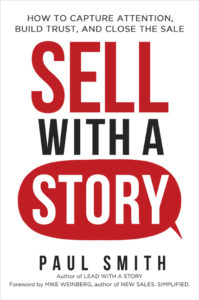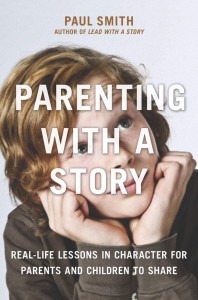Podcast: Play in new window | Download | Embed
Subscribe: RSS
Podcast (parenting-with-a-story-podcast-series): Play in new window | Download | Embed
Subscribe: RSS
When running for president in the year 2000, George W. Bush was asked by the press to explain his immature behavior in his twenties and thirties. He responded simply, “When I was young and irresponsible, I was young and irresponsible.” Most of us would like to forget at least some of what we said or did at some point in our lives. If you decide to run for president, you can bet you’ll be reminded of it—often.
But even if you’re not running for the highest office in the land, many of us have built-in memory retrieval devices that live in our homes and listen to our every word: our children. If you’re not careful, an unwelcome reminder can be hurled at you at the most inopportune time. That’s exactly what happened to Mark.
When Mark was still in his twenties, he’d been married with children long enough to lose some of his “young and irresponsible” habits, but apparently not all of them. One Sunday afternoon, around Halloween, Mark walked into the grocery store with his two-year-old son, Andrew. He remembers seeing lots of people in line at the checkout, still dressed in their Sunday best after coming from church.
As Mark tells the story, “It’s important to know that Andrew was verbal early as a child. And loud. So imagine me strapping Andrew into a shopping cart and pushing off to do my shopping. Well, as we passed the checkout aisles, Andrew apparently got an eyeful of all the display cases of Halloween candy. All of a sudden, I heard him yell out to me, ‘Dad, I want some fucking candy!’
“I could not believe what I heard. And for some foolish reason, I leaned over and said, ‘What did you say?’
“Well, he’s two, so of course he assumed I didn’t hear him properly. So he reached out with his little hands, grabbed me on both sides of the face, looked me right in the eyes, and said, even louder, ‘I saaaaid . . . I want some fucking candy!’”
At that point, Mark could feel all the eyes in the grocery store on him. A quick and embarrassed look up confirmed a dozen Sunday church-goers glaring, not at the two-year-old, but at Mark. Two-year-olds don’t learn that word on their own. Mark knew it, and they knew it. He quickly wheeled Andrew to the back of the store, away from the convicting stares. He said, “Son, that’s a really bad word. And I promise I won’t say it around you again. And you don’t need to say it either, okay?”
I supposed there are several lessons one could learn from this story. One is the importance of patience and the ability to delay gratification. In this case that would be delaying the gratification of Halloween candy until, well, Halloween. It doesn’t make anyone look good rolling through the grocery store demanding some candy when in a few days you’ll have a bucketful.
Second, Mark articulates the lesson for him as a parent this way. “Kids will show you the worst part of yourself.” That event largely ended Mark’s use of that word and a few other words. “I’m not saying when I hit my thumb with a hammer, I don’t squeak out a bad word. But it radically changed my language around Andrew.”
But I think there’s one more lesson for the child in this case, no matter what age. That is, when you behave poorly, it’s not just a bad reflection on you. It reflects badly on your parents as well for not raising you better. So even if your “young and irresponsible” behavior doesn’t embarrass you, think about how it makes your parents feel.
Think about the many convicting eyes that fall on them whenever you cross the line. When you realize your behavior comes back to haunt not just you, but others in your family, you might be more careful what you say and do, even if you’re not planning to run for president.
As with all of these stories, I encourage you to share this with your kids, and then have a discussion about it. Here are some questions to get you started.
- If you always got everything you wanted, exactly when you wanted it, what kind of person would you grow up to be?
- What kinds of things do you see your parents do that you think might not be setting a good example for you?
- When you hear other people your age use bad language, what do you think about them?
- Have you ever been embarrassed in front of a group of people? What was it like?
- What kinds of things do you do or say that might embarrass your parents if their friends saw you doing them?
- When do you think it might be appropriate or helpful to use language some people find offensive?
[You can find this and over 100 other character-building stories in my book, Parenting with a Story.]
—
 Paul Smith is one of the world’s leading experts on business storytelling. He’s a keynote speaker, storytelling coach, and bestselling author of the books Lead with a Story, Parenting with a Story, and Sell with a Story.
Paul Smith is one of the world’s leading experts on business storytelling. He’s a keynote speaker, storytelling coach, and bestselling author of the books Lead with a Story, Parenting with a Story, and Sell with a Story.


 Connect with him via email here.
Connect with him via email here.
Follow him on Facebook, LinkedIn, Twitter, and Instagram.
Sign up for his newsletter here to get one new story a week delivered to your inbox.


